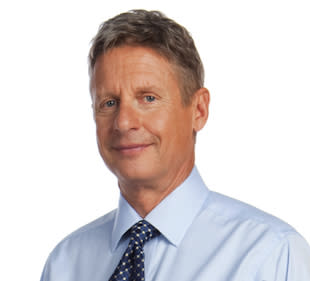 The Ticket
The TicketGary Johnson runs most successful Libertarian campaign in party’s history

He may have received only about 1 percent of the national vote, but Gary Johnson is already the most successful White House candidate in the Libertarian Party's nearly 41-year history.
"Ours is a mission accomplished," Johnson told FoxNews.com. "We put a true small-government, individual-freedom option on the ballot in virtually every state and have assembled an organization that will carry that message forward."
With final vote tallies still being calculated, Johnson's current total of 1,139,562 puts him significantly ahead of any of his party's nine other presidential candidates.
Interestingly, the only other Libertarian Party candidate to receive more than 1 million votes was Georgia Public Service Commission candidate John Monds, who received 1,076,726 votes, or 33.4 percent of the vote, during his 2008 campaign.
The most successful third-party candidate runs have historically been done by independents, most famously by Ross Perot in 1992 (19,743,821 votes, 18.91 percent) and John Anderson in 1980 (5,719,850 votes, 6.61 percent).
1980 was also a good year for Libertarian candidate Ed Clark, whose 921,128 votes and 1.06 percent share of the total vote was the most successful performance by a presidential candidate in his party until Tuesday night.
Still, the Libertarians' first-ever presidential candidate, John G. Hospers, is their most successful candidate by a different measurement. Though he received only 3,674 total votes, he's still the only Libertarian Party presidential candidate to win an Electoral College vote.
Most candidates from the Libertarian Party, which was founded in December 1971, have typically garnered about 500,000 votes in their respective runs.
Johnson said he's buoyed by the results and plans to maintain his role as an advocate for limited government policies. However, when asked, he was unwilling to say whether his historic performance was enough to guarantee another run in 2016.
"It's too soon to be talking about 2016," he said.

